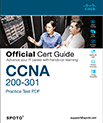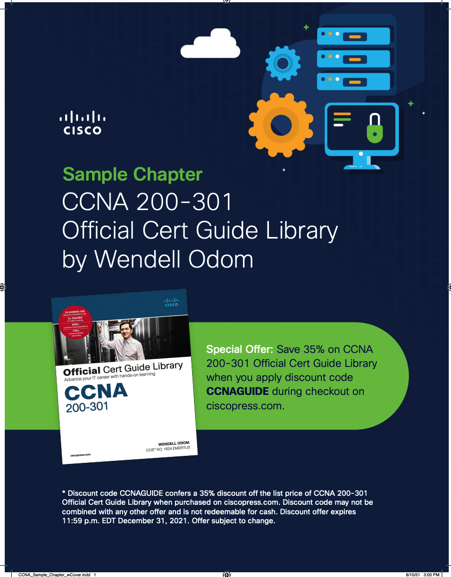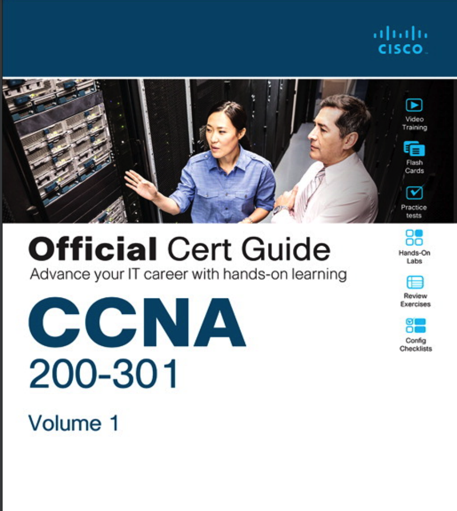Exclusive Courses | Cisco CCNA 200-301 Feture Tutorial
Classes of Feture - Study CCNA at SPOTO Learning
- Experienced instructors with industry expertise
- Access to official guides and materials
- Covers all exam topics thoroughly
- Flexible study at your own pace
- Support for exam service
- Anytime access to study resources
What you'll learn
Training Course Outline
Cisco CCNA 200-301 Feture
1. Standard ACLs
2. Standard ACLs
3. Extended ACLs
4. Extended ACLs
5. CDP & LLDP
6. CDP & LLDP Lab
7. Oracle VirtualBox
8. NTP
9. NTP Lab
10. DNS
11. DNS Lab
12. DHCP
13. DHCP Lab
14. SNMP
15. SNMP Lab
16. Syslog
17. Syslog Lab
18. SSH
19. SSH Lab
20. FTP & TFTP
21. FTP & TFTP Lab
22. QoS (Part 1)
23. Voice VLANs Lab
24. QoS (Part 2)
25. QoS Lab
26. Security Fundamentals
27. Kali Linux Demo Lab
28. Port Security
29. Port Security Lab
30. DHCP Snooping
31. WAN Architectures
32. GRE Tunnels Lab
33. Virtualization & Cloud
34.LIVE: CCNA Course Progress Update + Future Plans
35.LIVE: CCNA Automation with The Packet Thrower!
Training Options
Self Paced Learning
- Lifelong access to high-quality content
- Curated by industry experts
- Customized learning progress
- 24/7 learner assistance and support
- Follow the latest technology trends
Exam Dump
- 100% Real Exam Practice Tests
- 100% Verified Exam Questions & Answers
- 100% Guarantee Passing Rate
- Average 7 Days to Practice & Pass
Description
Level up your career in IT with this video-based online training course designed to help you master foundational networking knowledge-Feture and succeed on the CCNA 200-301 exam.
Pre-requisites
basic understanding of Networking devices Any server knowledge/ already CCNA will be an adantage but not cumpulsory

CCNA 200-301 Practice Test PDF
SPOTO Free CCNA 200-301 Practice Test PDF. 100% Valid CCNA Exam Questions and Answers from Real Exam.

CCNA 200-301 Official Cert Guide
When preparing for your certification exam, use the CCNA 200-301 Official Cert Guide Library—the only self-study resource approved by Cisco.

CCNA 200-301 Official Cert Guide Library
CCNA 200-301 Official Cert Guide Library is a comprehensive review and practice package for the latest CCNA exam and is the only self-study resource approved by Cisco.
CCNA Exam & Certification
What is CCNA Core Topic of Future?
The CCNA curriculum increasingly emphasizes automation, network programmability, and cloud integration to align with evolving IT trends. Future-focused topics include Software-Defined Networking (SDN), network virtualization (e.g., Cisco DNA Center), IoT connectivity, and security for hybrid cloud environments. Skills in Python scripting, RESTful APIs, and infrastructure-as-code (e.g., Ansible) are integrated to manage scalable, automated networks. These areas prepare professionals for modern architectures like intent-based networking and zero-trust security, ensuring CCNA holders can adapt to dynamic technologies such as 5G, edge computing, and AI-driven network analytics.
What is the Future Skill?
Future-proof skills for CCNA professionals revolve around automation, cybersecurity, and multi-domain integration. Key competencies include:
- Network Programmability: Automating tasks via Python or tools like Cisco DevNet.
- Cloud Networking: Configuring hybrid clouds (AWS, Azure) and understanding SaaS integrations.
- Security: Implementing zero-trust models, endpoint protection, and secure access (e.g., SASE).
- Analytics: Leveraging AI/ML for network monitoring and predictive troubleshooting.
These skills address the shift toward software-defined infrastructures, enabling professionals to manage complex, agile networks while mitigating emerging threats in decentralized environments.
Path to a CCNA Certification
- Foundation: Build basic networking knowledge (OSI model, TCP/IP).
- Study Resources: Use Cisco's official 200-301 guides, video courses (e.g., CBT Nuggets), and labs.
- Hands-On Practice: Simulate networks with Packet Tracer or GNS3 (VLANs, OSPF, IPv6).
- Exam Focus: Master core domains—network access, IP services, security, automation.
- Exam Registration: Schedule the 120-minute CCNA 200-301 exam via Pearson VUE.
- Certification: Pass the exam to earn CCNA, then pursue roles like Network Engineer or specialize in tracks like CyberOps or DevNet.
How do you prepare for the CCNA exam?
- Targeted Study: Follow Cisco's exam blueprint, focusing on weak areas (e.g., subnetting, wireless).
- Labs: Practice configuring ACLs, DHCP, and troubleshooting scenarios.
- Mock Exams: Use platforms like Boson ExSim to mimic exam conditions and identify gaps.
- Community Support: Engage in forums (e.g., Cisco Learning Network) for insights.
- Automation Prep: Learn basic Python scripting and JSON for network automation tasks.
- Time Management: Allocate 2-3 months for study, balancing theory and practical drills. Consistent, structured preparation ensures mastery of both legacy and emerging CCNA topics.